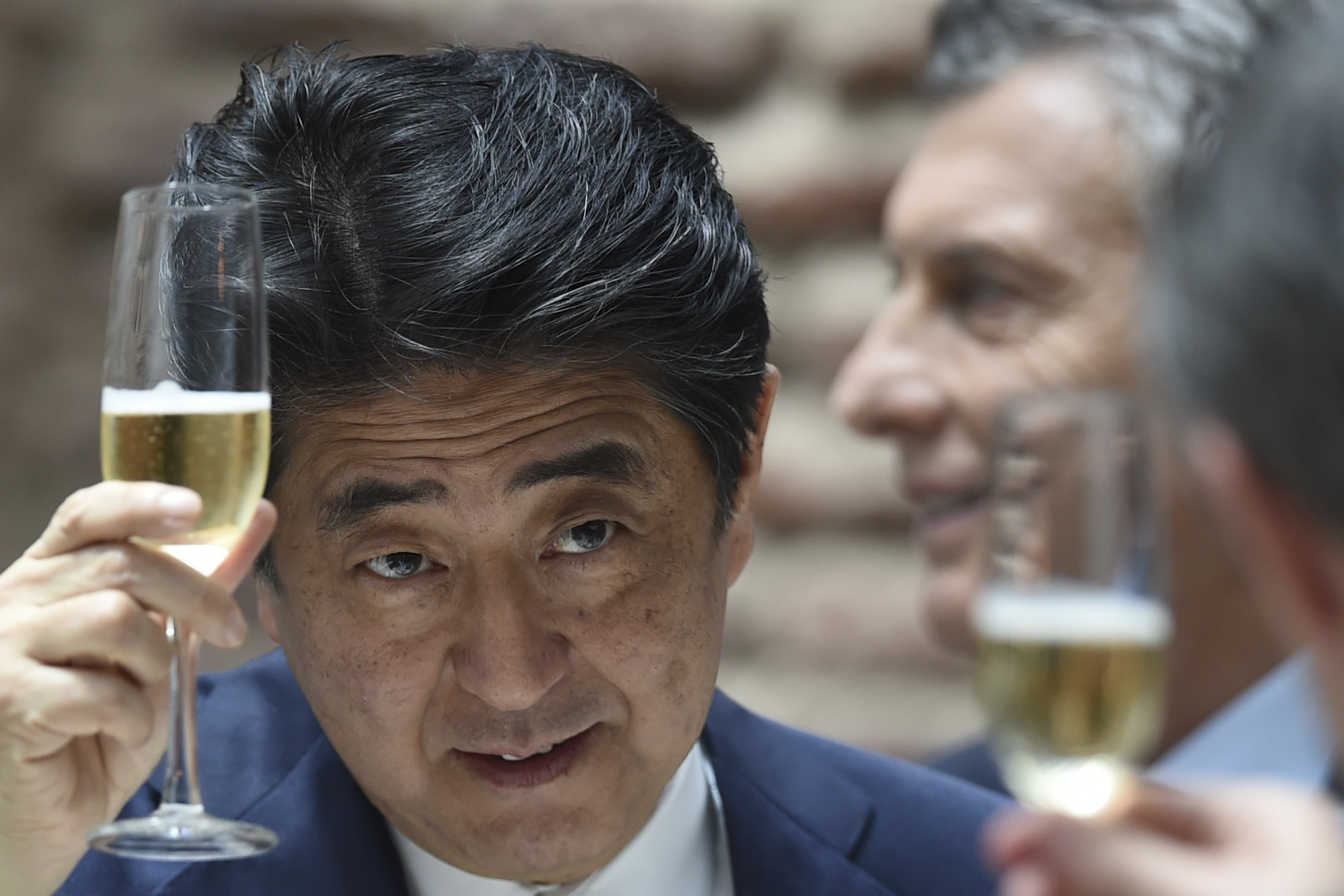
SHAKEN AND STIRRED
Japanese cabinet reformed as Abe’s popularity at record lows

Prime Minister Shinzo Abe will conduct a much-needed reshuffle of his ministers today. The change in leadership aims to quell discussion of Abe’s Liberal Democratic Party’s scandals, and raise their dismal 36% approval ratings.
Abe has struggled to maintain public trust amid accusations of favouritism over government approval of a new veterinary school run by a friend, Kotoro Kake. Mr Kake made millions of dollars through unexpected government deregulation and subsidies, fuelling rumours that funds may be kicked back to the LDP. Abe has also faced corruption accusations over previous land deals for a hypernationalist school group with ties to his wife.
The incumbent LDP party was wiped from 57 to 23 of 127 seats in last month’s Tokyo Municipal elections, often considered a bellwether for national politics. Abe likely hopes to recover voters through a theatrical cabinet reshuffle. The changes will make Toshimitsu Motegi, previously the LDP policy chief, the new economic minister, focusing his work on “Abenomics” reforms to make Japan a “peerless global economy”.
Delve deeper: Scandal-hit Abe faces falling public approval rates
DRAGGED BACK HOME
Donald Tusk faces hearing in plane crash investigation

European Council President Donald Tusk will be questioned about his role in the 2010 Smolensk air crash today.
The crash killed several of Poland’s top political and military leaders, including then-President Lech Kaczynski, whose brother Jaroslaw Kaczynski heads the governing right-wing populist Law and Justice Party. Kaczynski leads the country
The government blames Mr Tusk—Poland’s prime minister at the time—for the crash; Defence Minister Antoni Macierewicz has event accused Tusk of colluding with Russia in downing the jet. While the crash was officially attributed to pilot failure, Law and Justice has exploited the tragedy time and again to portray its political opponents—particularly Mr Tusk’s centre-right Civic Platform—as traitors.
This strategy, however, comes at a price. Two years after the election that swept Kaczynski and his party back into power, the country is internally divided and isolated in Brussels over the attempt to bring the justice system under the government’s control. While Tusk’s testimony is unlikely to unearth new findings, expect the political climate to be poisoned further in the months to come.
NOT SO PASSIVE
Japan to unveil defence White Paper amid regional tensions

Japan will publish its Defence White Paper today, which will include its military posture and relationships with neighbouring countries.
A previously released draft indicates the paper will focus heavily on North Korea—specifically its increasingly sophisticated missile-launching tactics that enable more precise and long-distance targeting. The draft further details China’s increased defence budget, highlighting concerns over potential aggression from Beijing.
Prime Minister Shinzo Abe has already secured US President Trump’s commitment to protect Japan against Pyongyang and put pressure on China. However, two DPRK launches in July have strengthened Tokyo’s long-standing wish for pre-emptive capabilities.
Accordingly, Japan is keen to bolster its own arsenal. This includes purchasing US Tomahawk missiles and F-35A fighter jets, as well as inking a deal with Germany to collaborate on land capabilities. Tokyo is also slated to substantially increase defence research spending from $5.4 to $98 million.
The revitalisation of Japan’s security program comes as Mr Abe attempts to amend the pacifist constitution to allow for a formal military. Though he uses the North Korean threat to justify his agenda, he must first wade through military scandals which threaten to scuttle his dream’s chances.
HAPPENING ELSEWHERE…

The Bank of England is expected to announce it will keep interest rates on hold today, while also releasing last quarter’s inflation figures. The figures will be accompanied by updated economic growth forecasts. In the first three months of the year, the UK’s economy was the worst performer compared to other G7 countries—growth clocked in at just 0.2%. Given the risks posed to Europe’s second largest economy from leaving the common market, these figures are likely to get worse before they get better.
The controversial assembly currently at the heart of Venezuela’s political crisis will be inaugurated. Tasked with rewriting the constitution, the temporary body will bypass the opposition-held legislature, centralising power in the socialist government. The inauguration will be met by mass anti-government street protests, which have become the norm in recent months.
Kosovo’s parliament will sit for the first time since a June 11 snap election. No party emerged with a majority from the poll, resulting in the IMF cancelling the final disbursement of a $216 million loan deal. Coalition talks are ongoing.

